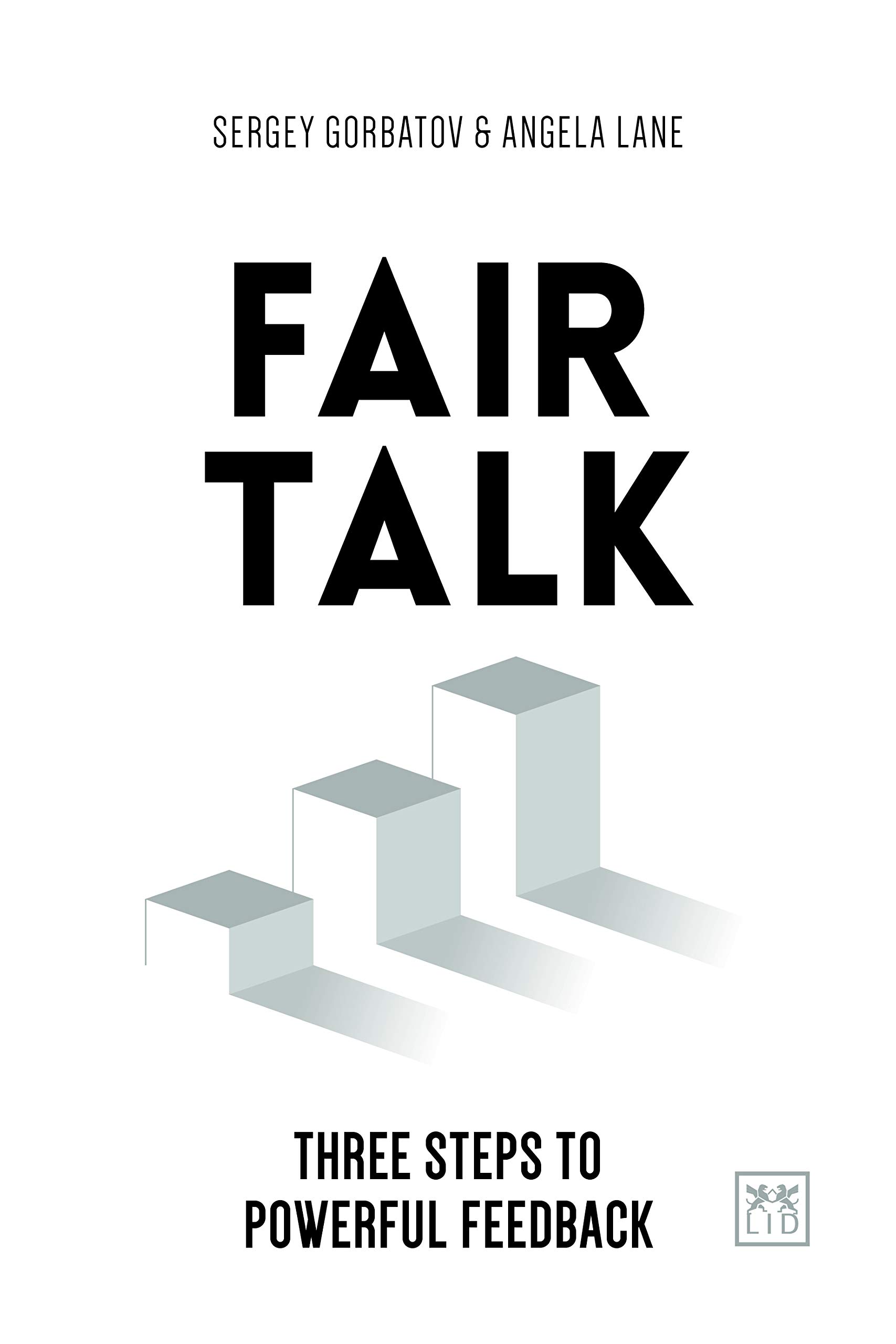Fair Talk
Three Steps to Powerful Feedback


Sergey Gorbatov is a Director General Manager responsible for a global talent pipeline in a large biopharma corporation and also an Adjunct Professor at IE Business School in Madrid. Angela Lane is a highly experienced Senior Human Resource Executive and author with global responsibility for talent in a 40,000 strong corporation. Based in the Chicago area she has spent almost 30 years working around the globe in blue chip enterprises.
Amidst current pace and complexity, feedback has never been more important nor more difficult to craft. In an environment of disruption and adaptation leaders find themselves on quests to facilitate higher performance, greater engagement, and boosting the potential of the talent around them. Here, the authors draw on science and expert opinion to surface the myths that need debunked, present a feedback framework that fits today’s world, and take us through the step by step practices that can make a huge difference to the work of leadership and the shaping of organization culture.
Founded on the view that we humans are not good at improvement, the relationship of actionable feedback to performance is a central theme of this new book. It comes in three sections being firstly an exploration of the nature and practice of feedback; secondly, all that it takes to be the Fairtalk leader; and in part three, building the Fairtalk culture.
The authors describe their approach modestly as ‘three steps’ – in reality there seems a lot more to it than that. Having moved us towards the foundational principles of “Fairness, Focus and Credibility” they consider what actually constitutes observable performance. They then lead us into the essential filters that encourage us to consider capability (what the person brings to the task); characteristics (how they go about doing that work); and context (what made it easy or hard to do the work).
They accept that often the biggest obstacle is emotion and that leaders need to ensure they have viewed things holistically, taken on wider opinions and shown self-insight in terms of the long list of potential unconscious biases that the authors list and describe.
They put forward the view that ‘it’s all about the dialogue’ and the three steps which come to the fore when we then get to sharing feedback: 1) Tell me why it matters 2) Tell me how I’m doing 3) Tell me what to do. The three areas are explored in detail but in all of this they also correctly highlight the damage that can be done when feedback is baffling, bogus or brutal. Their message is clear “focus on what is relevant.”
The third part of the book concentrates on what makes a strong feedback culture from the tone at the top to holding others accountable in a way that “reduces variability, builds in quality.” This section includes a culture diagnostic that invites the reader to self-diagnose different levers such as policy and process or metrics and measures that can feed into a sustainable feedback culture.
In reality this is not an easy subject to tackle. However, the complexity of the topic is not ducked but rather explored from many different angles before leading into a step by step process that offers most leaders a better chance of fitting their feedback to performance and potential. As an additional feature fifteen notable practitioners and academics each get a two-page slot which adds texture and examples to augment sound data and advice. In conclusion, this is an excellent read for leaders who care about performance.
Reviewed by Drew Watson: Drew is a Director of Drew Watson International Ltd and works in leadership and organization development. He was Group Head of Leadership Development at Standard Chartered Bank and is now also an Associate Fellow at Saïd Business School at Oxford University. www.dwiconsult.com
Title: Fair Talk: Three Steps to Powerful Feedback
Author/s Name/s: Sergey Gorbatov and Angela Lane
Publisher: LID Publishing
ISBN: 978-1-912555-09-3
Publishing Date: March, 2019
Number of Pages: 240
Author Knowledge Rating: 1-5 (based on their years of experience, academic expertise in subject areas, and exposure to cross-functional thinking in the area)













































































Readability: 1-5 score(1=dense and v academic; 5=frantic; page turner)































































































Appropriate Length: (1=could have been written in 25% of the length;5=could have been longer)















































































Core Idea Value: (1=nonsense (or entirely esoteric); 5=game-changer)














































































